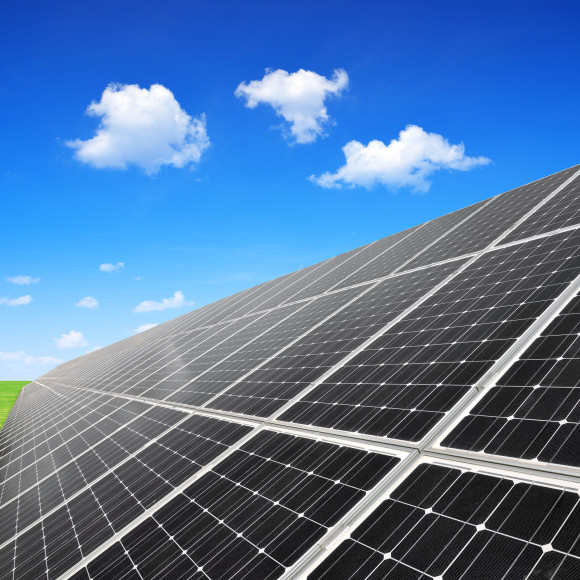Noting that wildfire is a growing source of loss for both wind and solar power producers and insurers, one of the insurers is urging the U.S. solar industry to act to mitigate wildfire risk over the coming months or face the possibility of significant losses this summer.
According to GCube Underwriting Limited, a leading underwriter of renewable energy, wildfires alone have cost the solar industry tens of millions of dollars in losses over the course of the last decade.
GCube’s recent ‘Hail or High Water’ report, analyzing a decade of industry claims data, found approximately 50% of all claims for solar asset damage due to extreme weather were caused by wildfire.
GCube, a member of the Tokio Marine HCC group of companies, says that the risk of further significant damage to solar panels is increasing as wildfires grow in size and severity across the Western U.S. “Solar owners in this climate who do not appropriately manage this evolving fire risk leave themselves and their assets vulnerable to considerably higher losses, both through component damage, compromised operations, and in some cases, liability exposure to third parties,” GCube warned.
“Obviously, solar projects need to be exposed to the elements in order to produce power, and while some may be robust to a greater or lesser extent in the face of most forms of extreme weather, they are all at high risk of damage during a wildfire event,” said Fraser McLachlan, CEO of GCube.
He said that as wildfires continue to grow in frequency and magnitude, the industry and owners must take into account better planning with regard to fire fighting and vegetation management.
He added that trade tensions and the recent U.S. sanctions against Chinese solar manufacturers could strain supply networks resulting in damaged panels possibly taking longer to be repaired or replaced.
There is also the possibility of owners facing legal responsibility for property damage to third parties.
As a result, many insurance companies have started to put blanket wildfire exclusions in place across policies to mitigate their exposure to this risk.
McLachlan said GCube is taking a “case-by-case, site-by-site, and above all, data-led approach” to working out whether a project is significantly exposed to fire, rather than enacting blanket exclusions.
In a March report, GCube noted that while solar projects have most frequently been damaged by wildfire, compared to flooding for wind projects, both technologies have also seen substantial claims from windstorms and hailstorms, with the largest single solar loss in history resulting from a hailstorm in 2019.
Source: GCube
Topics Catastrophe Natural Disasters Wildfire
Was this article valuable?
Here are more articles you may enjoy.



 Former Ole Miss Standout Player Convicted in $194M Medicare, CHAMPVA Fraud
Former Ole Miss Standout Player Convicted in $194M Medicare, CHAMPVA Fraud  Allstate CEO Wilson Takes on Affordability Issue During Earnings Call
Allstate CEO Wilson Takes on Affordability Issue During Earnings Call  Florida Senate President Says No Major Insurance Changes This Year
Florida Senate President Says No Major Insurance Changes This Year  Florida’s Commercial Clearinghouse Bill Stirring Up Concerns for Brokers, Regulators
Florida’s Commercial Clearinghouse Bill Stirring Up Concerns for Brokers, Regulators 

